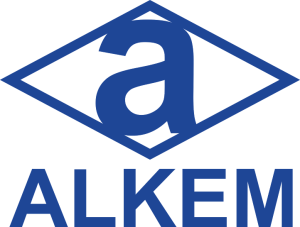 COMPAT by its order dated May 10, 2016 has set-aside the order of CCI in so far as it had held that Alkem Laboratories Limited (Alkem) for violation of Section 3(1) of the Act and had imposed a penalty of INR 74 crores.
COMPAT by its order dated May 10, 2016 has set-aside the order of CCI in so far as it had held that Alkem Laboratories Limited (Alkem) for violation of Section 3(1) of the Act and had imposed a penalty of INR 74 crores.
Pursuant to the case by the Informant (Mr P K Krishnan, Proprietor, Vinayaka Pharma) the CCI passed an order directing the DG to investigate into the alleged anti-competitive practices by Alkem. It is alleged that imposing the condition of procuring No Objection Certificate (NOC) from All Kerala Chemists and Druggist Association (AKCDA) by Alkem was in contravention of the provisions of section 4 of the Act and amounts to an act of refusal to deal and driving existing competitors out of the market.
The DG, in his detailed report submitted that the AKCDA as an association of stockists and distributors has been following a practice of NOC necessarily required to be taken from it for appointment of a new/ additional stockiest which had the effect of limiting and controlling the supply of drugs and medicines in Kerala, apart from being an entry barrier, thereby contravening the provisions of Section 3(3) (b) read with Section 3(1) of the Act.
The CCI noted that the evidence collected by the DG in this case revealed that Alkem was holding up the supply of stocks to other stockists because of the pressure of AKCDA. Such a refusal by Alkem, to supply drugs and medicines to the informant was because of the instructions given by AKCDA. It observed that although the agreement between AKCDA and Alkem would not fall within the ambit of section 3(3) or 3(4) of the Act, but was still amenable to the jurisdiction of the CCI under section 3(1) if the same had an appreciable adverse effect on competition (AAEC).
The CCI held that even though Alkem acted on the directions and threats of AKCDA, the same could have approached the CCI instead of complying with the directions of AKCDA which were against the order of the Commission for refusing to deal with unauthorized stockists.
COMPAT, while setting aside the observations made by the CCI found that the informant deliberately suppressed the vital facts and documents from the Commission, which resulted in passing of the order under Section 26(1) of the Act, that Alkem had refused to appoint informant as a stockist and supply the medicines on the ground of non-production of NOC from AKCDA. The CCI was not apprised of the fact that Alkem did not supply medicines to the Informant because the he was not appointed as a stockiest by the competent authority of Alkem. The CCI had not been apprised about the fact that the Assistant Drugs Controller, Ernakulam had accepted the non-appointment of Informant as the stockiest as a valid ground for refusal to supply. Further, as soon as the Informant had been appointed the stockiest legitimately, Alkem had commenced supply to the Informant. However, both the DG as well as the CCI moved on the erroneous presumption that the Informant had been appointed the stockiest by the competent authority of Alkem.
The COMPAT held that the findings recorded by the CCI about the alleged complicity of Alkem in the anti-competitive practices of AKCDA are self-contradictory and are perverse. Once the element of diktats by the AKCDA to the pharmaceutical companies to insist on production of NOC for appointment of a person as a stockist or supply of medicines, is proved, the element of agreement automatically disappears and thus Alkem could not have be held guilty of acting in violation of Section 3(1) of the Act. The subsequent appointment of the informant as a stockist by the competent authority without asking for NOC from AKCDA refutes the finding recorded by the CCI that Alkem had acted in violation of Section 3(1) of the Act.
Regarding the issue of individual liability of officers of Alkem, the COMPAT held that neither the Informant nor DG produced any evidence to prove that Johnson Mathew and T K Haridas (that Appellants Nos. 2 and 3) were in-charge of and were responsible to Alkem, for the conduct of its business, ignoring the stand of Alkem that the application made by the Informant as a stockist was processed by two of its officers and the final decision was required to be taken by the Vice President-Marketing and the authorised signatory, but the letter appointing the informant as a stockist was issued by Shri Paul Madavana without any authority to do so. The Assistant Drugs Controller accepted this statement and the DG and the CCI did not find any valid ground to discard the same. Therefore, Appellants Nos. 2 and 3 were neither the in-charge of nor responsible to Appellant No. 1 for the conduct of its business so as to attract Section 48(1) of the Act.
The COMPAT concluded that the findings recorded by the CCI, against Alkem were legally unsustainable, and thus the consequential penalty imposed by the CCI on Alkem and Appellants Nos. 2 and 3 were liable to be quashed.
COMMENT-This order by COMPAT comes as a big relief to pharmaceutical companies since the impugned CCI order was the first time the CCI had penalized a Pharma manufacturer for following the diktats of a trade association. This order had far reaching implications on the business conduct of Pharma companies as more such penalties were expected for pharmaceutical companies who fail to resist the diktats. I have recently conducted a webinar on this very issue .
(Source: Order dated May 10, 2016. For full text see COMPAT website)
Suggested Reading:
(ii) Bid-Rigging in Public Procurement: Some evolving trends in Indian Competition Law
(iv) COMPAT sets aside order against Cement Cartel







